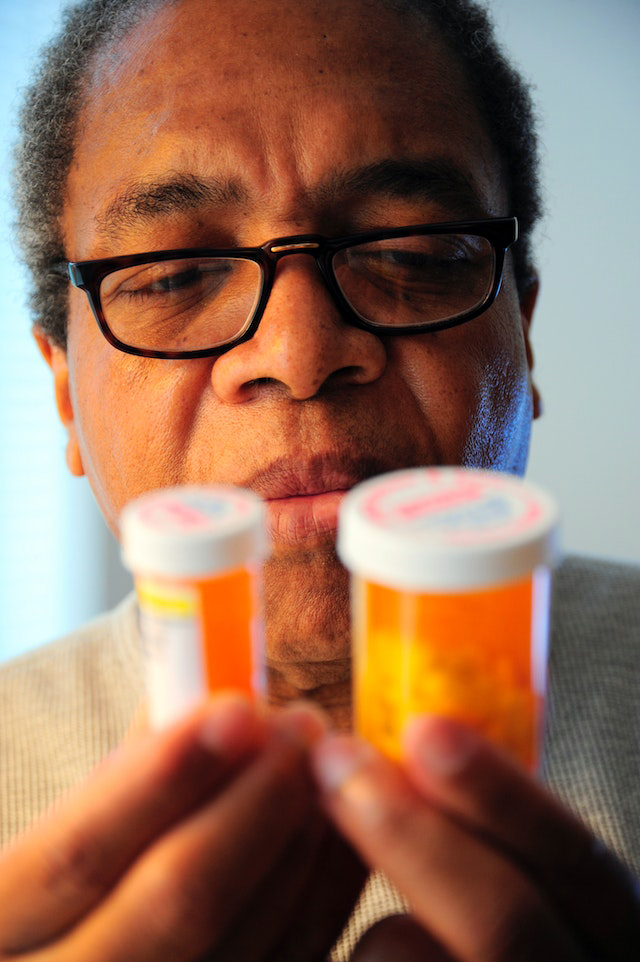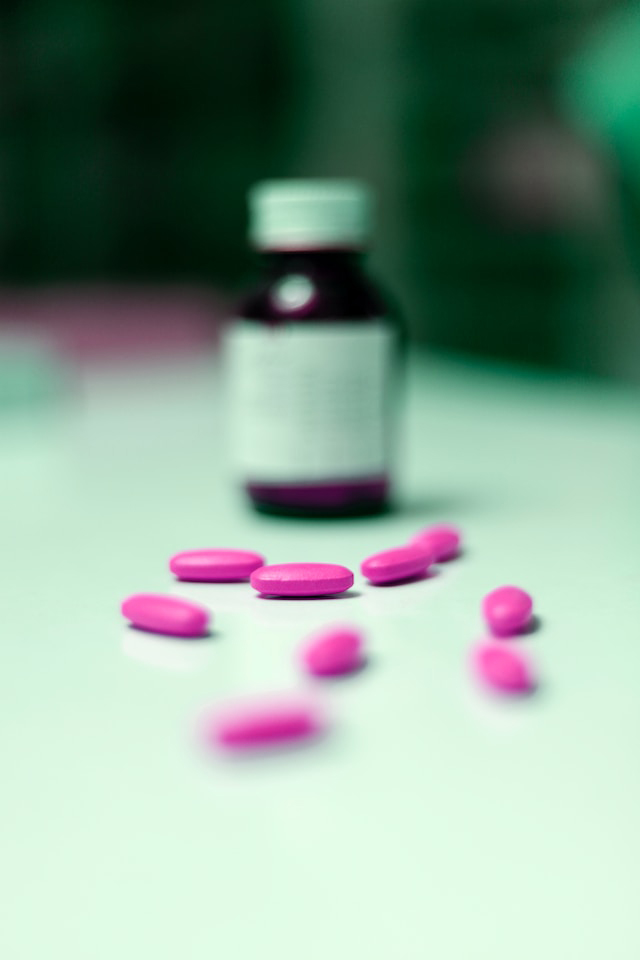8 Prescription Medications That Don’t Mix With Heat
Temperatures are soaring in many regions of the country, putting people — especially older adults — at risk for heat-related illness, even death. And one thing that doesn’t help is if you are taking medications that interfere with your body’s ability to cool itself down.
 “This issue is particularly important for older people because they tend to be on more medications that alter either the body’s control of circulating blood volume and/or cardiac activity,” which can make it harder to deal with the heat, says Cecilia Sorensen, M.D., director of the Global Consortium on Climate Health and Education at Columbia University in New York City.
“This issue is particularly important for older people because they tend to be on more medications that alter either the body’s control of circulating blood volume and/or cardiac activity,” which can make it harder to deal with the heat, says Cecilia Sorensen, M.D., director of the Global Consortium on Climate Health and Education at Columbia University in New York City.
It’s important to pay attention to this often-overlooked side effect during heat waves, which the Environmental Protection Agency says are increasing in both intensity and frequency. But it’s not just those stifling stretches that can be dangerous. Research shows that older patients with chronic medical conditions who take heat-sensitive medications can have medication-related problems throughout the entire summer.
How Do Medications Affect Your Heat Tolerance?
First, it’s important to understand how your body deals with heat and works to maintain that ideal internal temperature of 98.6 degrees.
 To cool off, your body has several tricks. One is perspiration (or sweat). When sweat evaporates from your skin, it cools the body.
To cool off, your body has several tricks. One is perspiration (or sweat). When sweat evaporates from your skin, it cools the body.
Another is when the blood vessels underneath your skin vasodilate (widen) and bring warm blood closer to your skin, allowing the skin to release heat.
Several different medications, though, can interfere with this complex thermoregulation system by limiting the body’s ability to sweat or by reducing blood flow to the skin. Medications can also cause dehydration, and some may make the skin more sensitive to the sun, causing a rash or sunburn.
Some individuals are more susceptible to these heat-related issues than others. Risk factors include being over the age of 65, having chronic medical conditions, and being overweight. Spending time outside in the warmest part of the day — especially if you are doing yard work, physical activity, or exercise — also increases your risk.
8 Types Of Medications That Don’t Mix With Heat
 Below are some examples of commonly used medications that can make it harder for your body to handle the heat.
Below are some examples of commonly used medications that can make it harder for your body to handle the heat.
1. Heart medications
Prescribed for high blood pressure, blood-clot prevention and to support the pumping function of the heart.
- Diuretics (also called water pills): furosemide (Lasix), chlorthalidone (Hygroton), hydrochlorthiazide (Microzide, HydroDiuril)
- Beta-blockers: metoprolol (Toprol, Lopressor), atenolol (Tenormin), carvedilol (Coreg), propranolol (Inderal)
- ACE Inhibitors: lisinopril (Zestril, Prinivil)
- Angiotensin II receptor blockers (ARBs): losartan (Cozaar), valsartan (Diovan)
- Antiplatelets: clopidogrel (Plavix)
2. Antidepressants
Prescribed to treat depression and anxiety.
- Selective serotonin reuptake inhibitors (SSRIs): citalopram (Celexa), escitalopram (Lexapro), fluoxetine (Prozac), paroxetine (Paxil), sertraline (Zoloft)
- Serotonin-norepinephrine reuptake inhibitors (SNRIs): duloxetine (Cymbalta), Venlafaxine (Effexor XR)
- Tricyclic antidepressants: amitriptyline (Elavil), nortriptyline (Pamelor)
3. Antipsychotics
Prescribed for schizophrenia, bipolar disorder, and other mental health disorders.
- Examples: risperidone (Risperdal) Quetiapine (Seroquel), Haloperidol (Haldol), Olanzapine (Zyprexa)
4. Central nervous system stimulants
Prescribed for attention deficit hyperactivity disorder (ADHD).
- Examples: dextroamphetamine (Adderall), methamphetamine (Desoxyn), methylphenidate (Ritalin)
5. Anticholinergics
Prescribed for Parkinson’s disease and overactive bladder.
- Examples: benztropine (Cogentin), oxybutynin (Ditropan XL), tolterodine (Detrol)
6. Antihistamines
Used for seasonal allergies, bug bites, and bee stings.
- Examples: diphenhydramine (Benadryl)
7. Decongestants
Used for the common cold and allergies.
- Examples: pseudoephedrine (Sudafed), phenylephrine (Sudafed PE), Oxymetazoline nasal spray (Afrin, Zicam, Dristan, Mucinex)
8. Dopaminergics
Prescribed for Parkinson’s disease.
- Examples: carbidopa/levodopa (Sinemet)
If you are taking a medication that can be problematic in the heat, it’s a good idea to set aside time to discuss this with your doctor and hatch a plan for hot-weather days.
“To avoid these problems, health professionals need to be aware of what medications put older people at risk and educate them and their caregivers,” Columbia University’s Sorensen says.
There aren’t specific protocols for prescribing medications during hot weather, explains Soko Setoguchi, M.D., professor of medicine at Rutgers Robert Wood Johnson Medical School and an expert on the health effects of medications. However, your doctor may want to lower the dose of a medication or sub in another.
5 Tips For Managing Medications In The Heat
- Don’t abruptly stop any medication. Many must be taken daily to keep the blood level high enough. Talk to your doctor if you are concerned.
- Make sure you store medications properly. Insulin, for example, can become less effective if left in the heat.
- Stay hydrated. Clues that you might be dehydrated are loss of body weight, making less urine, and producing urine that’s darker than usual. Water from the tap (squeeze some lemon juice in for flavor) is a great way to hydrate but be sure to check with your doctor if you have been put on fluid restriction. Avoid alcohol, as this can make you dehydrated.
- Keep cool. Wear light, loose-fitting clothes, pull down the shades at home, use a fan or air-conditioning, and avoid outdoor activity during the hottest times of the day.
- If a medication causes photosensitivity (see below), wear sunscreen (SPF 15 or greater) and a sun-protective hat and clothes.
Medications and the Sun
Is your medicine making your skin sensitive to the sun? These five drugs can put you at greater risk for sunburn-like symptoms, a rash, or other unwanted side effects.
- Antibiotics: tetracycline (Panmycin), doxycycline (Vibramycin), ciprofloxacin (Cipro), ofloxacin (Floxin)
- Antifungals: griseofulvin (Gris-PEG)
- Antihistamines: loratadine (Claritin), cetirizine (Zyrtec)
- Statin cholesterol medications: simvastatin (Zocor), atorvastatin (Lipitor), lovastatin (Mevacor), pravastatin (Pravachol)
- Diabetes medications: sulfonylureas like glipizide (Glucotrol), glyburide


